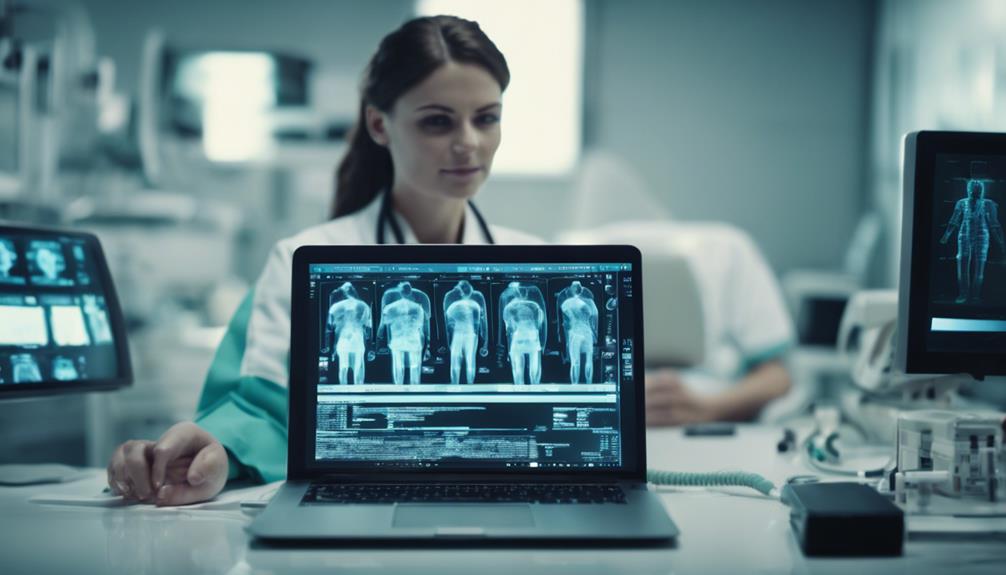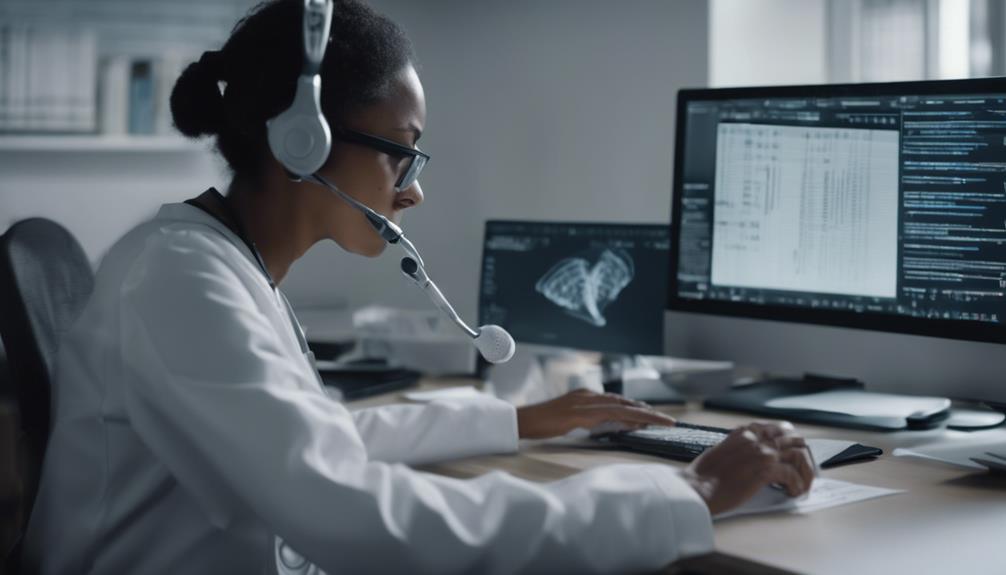To excel as a virtual assistant in medical transcription, you must master a variety of essential skills. From navigating intricate medical terminology to swiftly transcribing documents with accuracy, the demands of this role are multifaceted. But what else is required beyond these foundational abilities? Stay tuned to uncover the nuanced skill set that sets apart a proficient virtual assistant in the specialized field of medical transcription.
Medical Terminology Knowledge
To excel as a virtual assistant in medical transcription, you must possess a solid understanding of medical terminology. Industry standards dictate that a deep knowledge of medical terms is crucial to accurately transcribe and interpret dictated recordings. Specialized training in medical terminology is essential for ensuring precision and adherence to industry norms. This training equips you with the ability to comprehend complex medical jargon, abbreviations, and procedures commonly used in healthcare settings.
In the field of medical transcription, accuracy is paramount. Knowing the correct terms and their meanings is fundamental to producing high-quality transcriptions. Without a strong grasp of medical terminology, errors can occur, potentially leading to misinterpretations and jeopardizing patient care. Therefore, investing time and effort into acquiring and maintaining proficiency in medical terminology will set you apart as a competent virtual assistant in medical transcription. Remember, precision in this area is non-negotiable to meet the demands of the industry.
Typing Skills
Developing proficient typing skills is essential for excelling as a virtual assistant in medical transcription. Speed and accuracy are crucial when transcribing medical documents. Your keyboard proficiency plays a significant role in ensuring efficiency and precision in this role. Here are some key points to consider:
- Speed Accuracy: Being able to type quickly while maintaining accuracy is paramount in medical transcription. Practice typing exercises to improve your speed without compromising accuracy.
- Keyboard Proficiency: Familiarize yourself with the layout of the keyboard and learn to touch type to enhance your efficiency. Knowing shortcuts and being comfortable with different keyboard styles can significantly boost your productivity.
- Accuracy: Focus on typing accurately to avoid errors in medical documents. Precision is key in ensuring the information is transcribed correctly.
- Practice Regularly: Regular practice is essential to hone your typing skills. Set aside time each day to practice typing exercises and improve your speed and accuracy.
Listening Skills
Enhancing your ability to actively listen and accurately interpret audio recordings is crucial for success as a virtual assistant in medical transcription. Active listening involves fully concentrating, understanding, responding, and remembering what is being said in the audio files you work with. To improve your active listening skills, consider implementing various communication strategies.
One effective strategy is to minimize distractions during transcription tasks. Find a quiet workspace, use noise-canceling headphones, and ensure that you have a comfortable environment to focus solely on the audio content. Additionally, practice paraphrasing or summarizing the information you hear to confirm your understanding. This can help in accurately transcribing medical terms and procedures.
Another valuable communication strategy is seeking clarification when needed. If you encounter unclear or ambiguous sections in the audio, don’t hesitate to reach out to the relevant healthcare professionals for clarification. By actively listening and utilizing effective communication strategies, you can enhance your performance as a virtual assistant in medical transcription.
English Proficiency
Improving your English proficiency is essential for effectively transcribing medical documents as a virtual assistant. To ensure accurate transcription, being fluent in English is crucial. Language barriers can hinder the transcription process, leading to errors. Here are some key points to consider:
- Fluency Assessment: Regularly assess your fluency in English to identify areas for improvement.
- Practice Pronunciation: Work on pronouncing medical terms correctly to enhance transcription accuracy.
- Expand Vocabulary: Continuously expand your medical vocabulary to understand and transcribe complex terms accurately.
- Seek Feedback: Request feedback from supervisors or colleagues to improve your English proficiency and transcription skills.
Accuracy and Attention to Detail
To excel as a virtual assistant in medical transcription, meticulous attention to detail and unwavering accuracy are paramount. Your role demands precision in transcribing complex medical terms and dictations. Accuracy is crucial to ensure patient records are error-free and maintain the integrity of medical information. Attention to detail is not just about catching spelling mistakes but also identifying inconsistencies in medical reports that could impact patient care.
Time management and organizational skills are essential to meet deadlines and handle a high volume of transcription tasks efficiently. Prioritizing assignments based on urgency and importance can help you stay on track and deliver quality work promptly.
In addition to accuracy and attention to detail, critical thinking and problem-solving abilities are valuable traits for a medical transcription virtual assistant. Being able to interpret unclear dictations or medical jargon requires analytical skills to ensure accurate transcriptions. Developing strategies to overcome transcription challenges will enhance your efficiency and effectiveness in this role.
Frequently Asked Questions
Can Virtual Assistants in Medical Transcription Work Remotely?
Yes, virtual assistants in medical transcription can work remotely. Remote work flexibility allows for a flexible schedule. Training requirements ensure proficiency in medical terminology and transcription software. You can excel in this role with dedication and attention to detail.
Are Virtual Assistants in Medical Transcription Required to Have Prior Healthcare Experience?
Before diving into the world of medical transcription as a virtual assistant, remember: “Practice makes perfect.” While prior healthcare experience isn’t always required, having healthcare knowledge and strong transcription skills, along with relevant educational background and training, can greatly benefit your journey.
What Software Programs Are Commonly Used in Medical Transcription?
In medical transcription, common software programs include speech recognition technology for transcribing audio files efficiently and medical coding integration for accurate documentation. Familiarity with these tools is essential for a virtual assistant in this field.
How Do Virtual Assistants in Medical Transcription Ensure Patient Confidentiality?
To ensure patient confidentiality in medical transcription, you must follow strict protocols, use secure platforms, and encrypt data. Maintaining confidentiality involves respecting HIPAA regulations, avoiding unauthorized access, and securely storing sensitive information to protect patient privacy.
What Are the Typical Working Hours for Virtual Assistants in Medical Transcription?
For virtual assistants in medical transcription, flexibility in scheduling is key. You must manage your time efficiently while setting boundaries to maintain work-life balance. Typical working hours can vary, often including evenings and weekends to meet demands.



